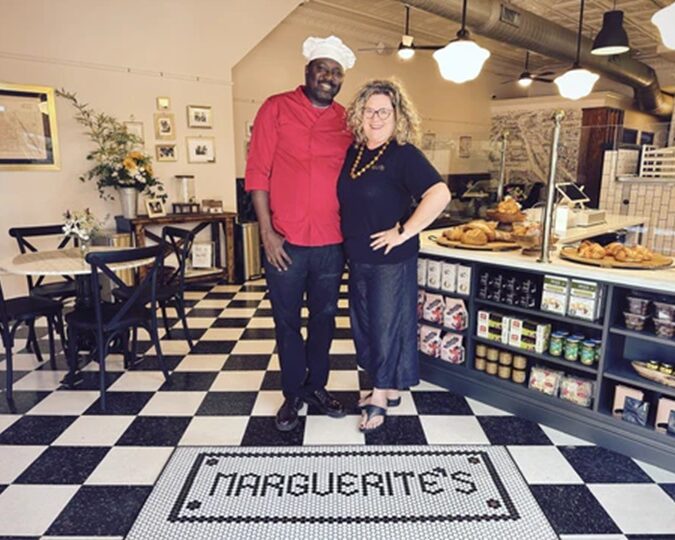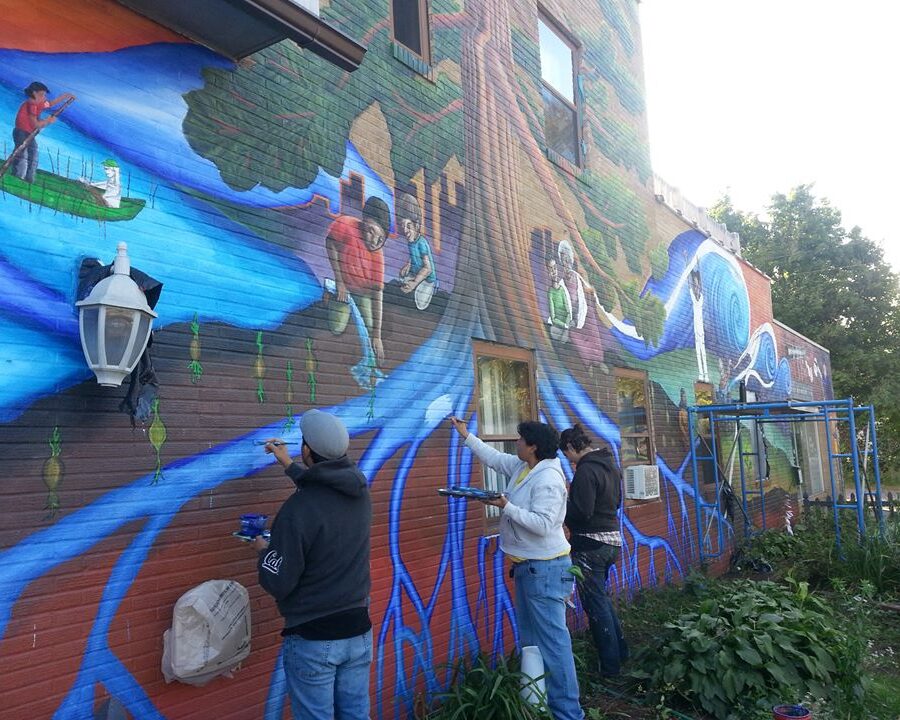BY CAROL BECKER
I wanted to respond to Alexander Johnson’s response to Perry Thorvig’s piece, “Future density! Farewell, neighborhoods?” In it, Johnson defends the 2040 plan’s replacement of ownership housing with rental, out-of-scale buildings throughout the city, and its destruction of neighborhood character.
We first must start with facts. It takes 2.1 babies per woman to keep a population stable. The United States currently has 1.64 babies per woman, a number that has been dropping for decades. Immigration is the only reason we are not removing housing. Minneapolis is projected to grow only 11% over the next 20 years and we will be lucky to achieve even that.
Johnson argues that we need to remove protections from existing housing to create density. He talks about “social, economic, and health benefits that come with high density,” including an increased tax base, a decreased reliance on a car, an increase in mass transit, an increase in social capital and “so much more.” All of this is fantasy. There simply aren’t going to be enough people to create the density that he imagines. Not now. Not ever.
In fact, the 2040 plan is anti-density. The 2030 plan focused development in Uptown, downtown and around the U, creating dense, walkable environments. With the 2040 plan, developers go wherever they can hustle a plot of land. We can now see out-of-place and out-of-scale apartment buildings in seas of single-family homes, the opposite of density. And it is unnecessary, as there is more than enough space in existing commercial corridors to accommodate a paltry 11% growth.
Johnson argues that demolishing existing housing and replacing it with apartments will produce affordable housing. This misdiagnoses the affordability crisis. Zoning isn’t the problem in Minneapolis. The cost to build things is. The cost to build has almost doubled since 2009, when adjusted for inflation. Because of the cost of materials and labor, the marketplace simply cannot produce housing that is affordable for an increasing number of people. The only truly affordable housing being created is subsidized. Environmental laws that oppose mining and lumber production drive up the cost of housing. But it is more fun to blame old homeowners and zoning than young environmentalists and environmental laws.
Johnson also misunderstands what “affordable housing” is. Ownership housing is affordable housing because it builds wealth. Rental property is not affordable because at the end of the month, renters have nothing. In fact, renting is one of the best ways of keeping people poor. Yet 95% of the housing built in Minneapolis since 2009 has been rental. The percentage of people owning a home has been declining, with billions of dollars flowing into corporate coffers instead of residents’ pockets. Johnson advocates for demolishing ownership housing and replacing it with poverty-making rental. Instead, we should preserve ownership opportunities so people can build wealth and not be poor. Currently there are neighborhoods where 30% of single-family homes are corporately-owned rental. Upzoning incentivizes corporations to purchase even more single-family homes. In a city with the largest population of people of color in the state, it is hard to see this as anything other than just plain racist.
Given that growth is grinding to a halt, we need to ask: What is Minneapolis’s strategic advantage? Why would people choose us? They can get cheaper housing, with less maintenance, better schools, lower taxes, easier travel and less crime in the suburbs.
I just came back from Boston. I went to the North End neighborhood. It is full of brick walk-ups on cobblestone streets, many from the 1700s. Paul Revere’s home is there. So was a mafia lair. You can feel the cobwebs of history around every turn. Now, I could have toured the Boston suburbs. Walked strip malls, cookie-cutter snout house neighborhoods, and beige new multifamily. But I have no interest. Nothing there stirs my soul.
Perry Thorvig calls the thing that drew me to the North End “neighborhood character.” Places that have preserved that which makes them different and unique. Places that are proud of what they are, and want to keep those things that make them special. Neighborhood character is the thing that drew me to my 100-year-old bungalow neighborhood in Minneapolis and neighborhood character is one of our best strategic advantages.
Johnson wants to destroy neighborhood character. He wants to remove zoning protections so our homes can be bulldozed and replaced by large, soulless modern apartment buildings. In fact, Johnson calls preserving neighborhood character “a dog whistle for protecting property values and resisting change that might lead to demographic shifts in the neighborhood,” as if we should be fighting to make ourselves poorer and building poverty-making rental property for people of color. And destroy our competitive advantage with the rest of the region. This makes no sense. It is possible to focus the little growth that will occur into existing walkable neighborhoods and along major commercial corridors while still preserving the best of our city.
I have to hand it to corporate America. They have done an exceedingly good job at co-opting progressives into carrying their water. They have sold them on the idea that the best way of dealing with the affordable housing issue is to reduce regulations on poor struggling housing capitalists. But we as a society have seen this play before. Deregulation never benefits the average person. Regular people don’t win when ownership housing is demolished and replaced with rental. Regular people don’t win when the thing that builds the value of their home, neighborhood character, is destroyed.
We need a national movement to start looking at why things like lumber are more expensive than they ever have been and whether environmental rules are driving the cost up. We need to spend our precious little growth focused on walkable neighborhoods, not randomly throughout the city. We need to cherish the things that make us unique and different and preserve our neighborhood character. We need to preserve ownership housing and build more. Perhaps what we need is a new organization to fight for wealth-building housing. Maybe we can call it “Old Homeowners for More Old Homeowners.”
























